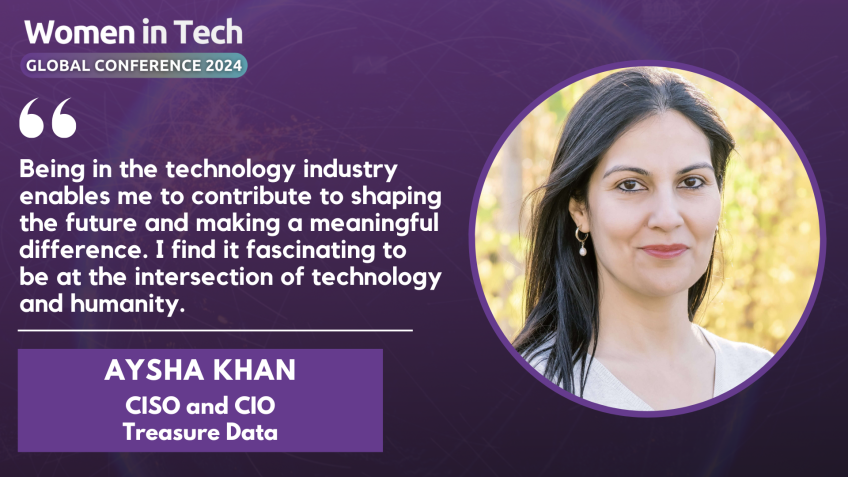SHE LEADS – Stepping into the New Paradigm of Leadership through Emotional Intelligence by Daria Vodopianova
Embracing Emotional Intelligence and Self-Leadership
Hello and welcome to an enlightening session on the significance of self-leadership and emotional intelligence in today's workforce. Today we will explore various aspects of leadership in the professional realm and discuss the importance of acknowledging and understanding your emotions at work.
Understanding the Sweet and Sour of Life
Before diving into the meat of the matter, it's important to recognize the dual nature of life experiences. Just like the contrasting flavors of sweet and sour, life encompasses both pleasant and unpleasant occurrences. As professionals, acknowledging these dual experiences can enhance our emotional intelligence and self-awareness.
For instance, a recent personal "sweet" experience was the joy of speaking at various summits. An accompanying "sour" was dealing with restless nights due to temperature fluctuations. Such small exercises can help us understand the confluence of varying emotions in our lives, lending a more holistic understanding of our feelings.
Self-Leadership: The Forgotten Facet of Leadership
In any discussion about leadership, the primary focus tends to be on leading others—be it a team, an organization, or a mission. However, often overlooked is the fundamental precursor to effective leadership - self-leadership.
From physique to psychology, individuals end up sacrificing various aspects of their personal lives in pursuit of professional success. In reality, effective leadership begins with being able to lead yourself efficiently. Your vision and mission, combined with an understanding of your boundaries and values, lay the foundation of successful self-leadership.
The Urgency of Adapted Leadership
The current workforce is facing a leadership crisis, encapsulated in leaders struggling with diverse mental health issues, from anxiety to burnout. Interestingly, this crisis can be reframed from just a 'burnout problem' to a 'leadership problem.' The key to improved leadership is not only about meeting targets and goals but fostering a work environment that respects and prioritizes emotional health.
Indeed, a leadership crisis can't be solved with a pill or an app; instead, it requires a rethinking of our approach to leadership. It calls for emotional intelligence to be the glue that holds the team together.
The Intersection of Emotional Intelligence and Leadership
This intersection starts with breaking the taboo about discussing and acknowledging emotions in the professional realm. It requires shifting the paradigm from addressing our feelings in isolation to integrating them into the workplace—the goal is to treat emotions not as a liability, but as fuel for creativity, productivity, and better team development.
Emotions are not just the domain of therapists; instead, they need to be acknowledged, understood, and leveraged in the work environment. The key to this shift is to practice worked-led emotional intelligence, prioritizing an empathetic and emotionally in-tune workspace.
Change Begins with the Leaders
Change, invariably, begins with the leaders. Breaking the taboo around emotions at work starts with leaders owning and speaking about their emotional state. It’s about fostering an environment that recognizes and validates feelings as much as it does numbers and statistics.
This path can be challenging; that’s where training and coaching come in. Learning to prioritize your emotional needs, and those of your team, go hand-in-hand with the ability to guide the professional growth of your organization.
Embodying Leadership through Emotional Intelligence
In this journey, self-leadership and emotional intelligence are intertwined. As neuroscience expert Antonio Damasio astutely recognized, "We are not thinking machines that feel; we are feeling machines that think." Embracing this perspective is crucial to cultivating a new style of leadership that is empathetic, effective, and emotionally aware.
Leadership isn't about sidelining feelings or prioritizing productivity over mental health. Instead, it involves fostering an emotionally intelligent workplace where everyone feels seen, heard, and valued. For that is when individuals can truly thrive—personally, professionally, and emotionally.
Video Transcription
So welcome to this session called, she leads self leadership and uh emotional intelligence. Hello from London UK, Cologne London. Amazing, great, really happy to be here.So before we start, I would love to hear how you're feeling today because maybe you've been in some sessions, we're gonna do a small exercise called Sweet and Sour. So basically, you can share a bit. What's something that has been good for you like lately? Which is sweet and something sour. I can start uh something sweet is that I have been speaking a lot like lately in several summits that I love yesterday and the week before in Paris, that was very fun and something sour is that I'm feeling that I didn't really sleep well this night. So it's been like hot and cold here in France. So um share in the chat. How are you feeling something sweet and something sour that has happened to you? So I also get to know you through your emotional intelligence of duality of who you are. So I'll start straight away with this session today. And the more interactive, uh the more you interact in the chat, the more you'll get out of this. It's a goal. It is really for me to get to know you and to work on the emotions together.
This is also why I'm already jumping right into hearing how you're feeling what has been less good lately. So we can be a bit more honest and start breaking the taboo of, you know, emotions in their workspace. So as I start just to kind of give you a bit of bit of a background, I'm the co founder of the Thought Leadership Academy and a 22 aesthetic speaker. And I'm a professional keynote speaker on the topics on leadership, female leadership and also professional public speaking. So what I've been doing for the last 10 years is really focusing on leaders becoming the top, you know, uh top people in the industry and being really into really being into their space of courage and saying yes to themselves first and building a business building a career around leadership that feels good where you stand for what you love and where you get to create this on your own conti conditions.
And just to kind of uh if you can relate throughout the conversation, what I'm gonna cover, just let me know and just say type yes, so that it would be really cool. So just to kind of give you a bit of a background, I've been doing this for more than 10 years when it comes to leadership development. And what last week actually, I was finalizing um a three months leadership training with 5 to 700 female leaders in the tech industry. And when it comes to the question of self leadership, what we really so in, in this space was how much leadership is about others? So please type, yes, if you can relate, you know, when we talk about leadership, it's about the team. We are, we are like, how do we lead the team? How do we show up for our boss? How you know, how do we report to our boss? How do we communicate with the boss? How do we make sure that we actually, you know, follow the quotas and the goals of the company. It has become so much about others and what the women were feeling and please let me know if you can relate to. That is like, where is Miley? Where is the leadership of my own life in my own career? When did my life become about the vision of the company, the mission of the company, the goals of the culture, the profits we are trying to hit.
And if you're an entrepreneur having your own company, maybe you can also relate. Like, where did, where did we lose ourselves with this? And if you're maybe a mother or in your relationship or maybe you're having other side projects, it's also easy to relate. That. Wow. I actually kind of forgot to put myself first and my, my session today with you is to focus on giving you the courage because actually, it takes a lot of more courage to have the leadership, the self leadership in the space of a career than just, you know, follow the vision of others.
It takes courage. So my goal with this very, very short session today where we have together is to give you the courage to put yourself first. Because self leadership is first, you fill your own cup first, you know what you want for your own career, you lead yourself and only when you can do that, can you lead others? Only when you are able to understand what you care about, what, how you wanna show up what your boundaries are, what your vision for your business and for your life is when you understand what really truly matters to your values and mission, what you want out of your career, then it's gonna be so much better for your life, for your business.
You will know you will have the intuition of what, what is the right or wrong. And it's not only to have the courage to put yourself first because here's the thing, there's an actual urgency to do this and I'll talk a bit about why there's an urgency to take this, not just as something that is fun as in and, and like this is good to have, there's an actual urgency and just to kind of and just to kind of give you the fact that the women I spoke to last week, they were all in mid management position, leadership position founders.
And, and I would love to hear what you are. If you are in leadership position or, or if you see yourself as a leader as already, you don't have need to have a team to see yourself as a leader. It's all about your position, your state. But what we realized was that, wow, if I don't put myself first, I might end up in 10 years in 20 years or 30 years, waking up one morning and saying, why do I have this life? Why do I? No worked so hard for whom? Why do I not show up for my best friend's wedding that I always travel? So I don't have the time to, to meet my friends and celebrate their wins. Why do I not take? And this was an actual example when my work is telling me that I can have this sick leave with my kids. Why am I so afraid to actually take that day off and be with my Children? Why am I so afraid to prioritize myself? And you know, for me, the worst thing that can happen is to wake up in 10 years, 20 years, 30 years time and say, wow, I spent my best years in my career serving the vision of somebody else. Please type in the chat if you can relate to this and if you have thought about this because here's the thing, if we don't think about that before it happens, if we don't actually design a career leadership, that feels good, what will happen?
And it happens really often is that we just get to hit the wall, we just hit a wall of our career and there's no turning back. So my goal is for you to see that. Wait a second. If I step back and I think about it before then I have the chance to design a life, a leadership that feels good. And the problem is huge when we talk about hitting the wall where so many leaders have sacrificed themselves and the journey of a career that may be their education, maybe their parents, maybe their school, maybe their society, maybe their boss, maybe someone else, someone else put their agenda before you.
And that is selfish. It's not selfish to put yourself first because isn't that more selfish to serve someone's else dreams than yourself? So, what we are seeing right now and just Klein is saying absolutely related being a single mom with a middle leadership career. Yeah. Exactly. Exactly.
It's about, wow, wait a second. Can I have the, am I safe to say? No? Am I safe? Is it selfish of me to have my boundaries and, and knowing what's really good for me? Like those questions are the questions I never had uh working. Um I had my first company when I was 21 and I speak with women on when I go into, you know, organizations and I work one on one with and in groups with leaders, it's having those conversations that are changing, show up for ourselves. So we don't wake up in 30 years time and thinking, what did I do with my career? And here's the thing, it's not just a small thing. It's a big question. A lot of women, especially women are having burnout signs and burnout sign. Does that not only means that you have, you know, a burnout many times, we don't even know it. I had my first burnout when I was 21 and, and I had a slight um kind of, you know, real close to Bernard when I was in my thirties um before the pandemic. Why was that such a big, I don't know, because 80% almost 80% of all female leaders I speak with have burned outside. It doesn't mean that they are better, but they might have anxiety, they might not sleep at night, they might have um feeling hard.
You know, I have people speaking with me who are full years old had heart attacks. We have, you know, isolation a lot of and please just write in the chat if you can relate to any of this. Like people I speak with, feel a bit like me. You're not feeling really good, but you're not feeling really bad that happened a lot. You know, May was Adam Grant who was a psychologist who spoke about this concept of, ah, I'm feeling kind of, I'm going to work but I'm not really excited and the thing is, and just write me. Yes, if you can relate to this or feeling slight depression or having, you know, how many people I have spoken with, who have real anxiety going back to work, they're feeling, you know, there's something off, there's something but our body is telling us signs of this is not sustainable readership.
It doesn't feel good, it doesn't feel right. So I'm talking about from the women I speak with, I work with FEMA leaderships. I speak with a lot of leaders who are founders or, you know, managers. And what they're telling me is that it doesn't feel good, it doesn't feel right. It doesn't feel that it is balanced or in so many ways, they are sacrificing their physical health and their mental, you know, mental overwhelm in their work for the goal of a company. And it's not that we don't want to be passionate, I'm passionate about what I do. I love what I do, but it's about learning how to have the balance. So you can actually be more sustainable, more productive, more creative, more innovative. It makes you better when you learn to work on self leadership tools and just to kind of give you a couple of stats and they in 2021 they did the largest leadership study of its kind and they had 15,000 leaders that they interviewed and 60% of those leaders used in the end of the day, which is kind of a clear sign of a burnout and 86% of the top employees were feeling the same.
So what happens is that we are having a mental health problem. We are having retention issues. If you are leading a team, people are leaving, people are leaving companies because you know, we talk about the great resignation. It's not a small thing. We are not talking about mindfulness practices. Here, we are talking about changing leadership because when people say that we are having a burnout problem, I don't think we have a burnout problem because if we hit burnout, we are already too late. What we have is a leadership problem.
We have a leadership problem, meaning that we don't take care of our leaders and leaders don't take care of themselves. They sacrifice themselves for others. And this is not leadership. Leadership is not, it's not making you a better leader. If you always sacrifice to all the work, to give to your boss, to take care of your team, to give. And even in your leadership in your, in your life, if you're a mother, if you're a partner, if you're a friend, if you're, you know your daughter, you're sacrificing yourself. And then we have an actual leadership problem because our leaders are burned out. Our leaders are not happy.
So more than just saying that it's mindfulness, it's about leadership trainings that actually teach you the the skills we talk about soft skills. It's actually the hard skills. It's not just a practice on an app. We what we need, we need to create a way to approach leadership in different ways. So just kind of give you the small example how self leadership is mostly um approach. It is very mental. So especially um when it comes to, you know, if you have, if we're gonna talk about this at work, it's still so taboo about talking about emotions and actually being able to talk about what we feel and how, how we, you know those conversations about what's my vision, how do I feel in this?
How do I want to communicate? What is it, you know, the, the the boundaries, all those things that we, we don't talk about? It's still very mental. So we talk about quotas we talk about, we should, you know, we have a mental health problem, we should need to do this, this and became so taboo and please just share in the chat. If you can relate to this, it becomes so taboo to talk about this. Whereas it's not about going to the therapist that about solving us. We don't need to be fixed. There's nothing wrong with you. You don't have to be fixed, you don't have to, we don't have to solve you. You're completely perfect as you are. It's just that you don't have the tools to be a leader. It's, it's a leadership question. You see, we put that as a therapy to talk about emotions. Why would you do that? It's not about going and saying I'm off. Let's me, let me fix me. So I'm productive again. It's about bringing the emotions as a glue within the organization. So what that, what that does that, what does that mean is that if I am working organization as a manager, if I'm, you know, if you, maybe you're a co-founder or a founder or you may be leading a team, it's about putting emotions first.
It's about checking in with your team, it's the glue. So you have the strategy, you have the vision, you have the actual, you know, the, the tangible factual and what makes it work is the emotions, what makes it work is learning to work with emotions. This is why we don't do this alone. I'm just gonna give you an example. It's beyond self care. It's beyond the therapies. What I'm talking about here is leadership, emotional intelligence, through um leadership through emotional intelligence. It's, it's going if and please type yes, if you can, you see the switch here. It's not about getting to burn out, then go to therapies and not talking about it at work. It's about bringing the emotions to work it's bringing the emotion in the forefront and say, hey, this is how I'm feeling as a team leader, as, as a, as an employee, as a founder. This is how I'm feeling. So what's really how I see what's done wrong is that we have a very mental approach to it. So we focus a lot about, you know, solving it in a very factual way, but it's emotional intelligence. So our leaders need to be actually connected to their own emotions and it's often team focused. My team is not performing. My team is not feeling well, but we are not bringing it back to the leaders.
So as we have four minutes left, a very short session today, but what I would say is that if you want to do this, right? If you wanna do this right is we have to stop, we have to break of emotions at work. And it's a big, big, big question of bringing emotions to work as a fuel for creativity, for productivity, for well being for team development, for every part of our, of our joy at work, of our happiness at work. It's about as a leader not saying that I have to lead others. You need to lead yourself. You need to break the taboo. The only way you can break the taboo. If you're a team leader, if you want to become a really great leader is that you have to start with yourself first. You start with yourself first. Now, not when you have to go to the therapist or you have a burnout now in the beginning. So we start with emotion and we start with us first. Before we think about others in the team, we do this work. Not as on this either on an app, we do it together as a community. If you wanna, it's leading, by example, you want your team to be better. It's about including yourself and creating a leadership culture where you actually have the tools to work on emotions at work.
And if you don't know what to do with this, the this is hard skill, this is training and coaching. This is, you know, actual support that you can get to implement this long terms. You shift your organization from within. It's about creating a safe space for your teams. It's about ongoing support. So you know how your team member is feeling, you know, how your co-founder is feeling that we don't say, oh I didn't know that you felt this way. So in general, the three things that will say that can really help your organization to start, this is breaking the taboo of emotions at work and really stepping into saying that it's not about the burnout problem. It's about the leadership problem. It's about leadership and emotions, them together.
We lead with emotions, we are not. And I think it was this car error, the book that said we are not thinking machines that feel we are feeling machines that think.





